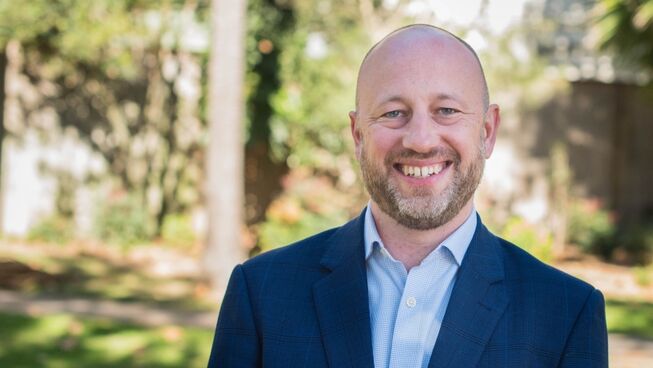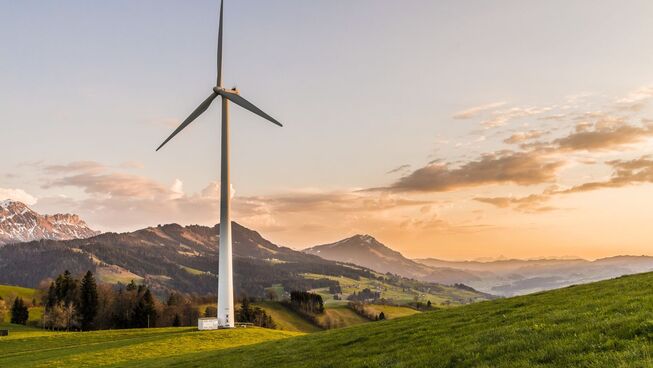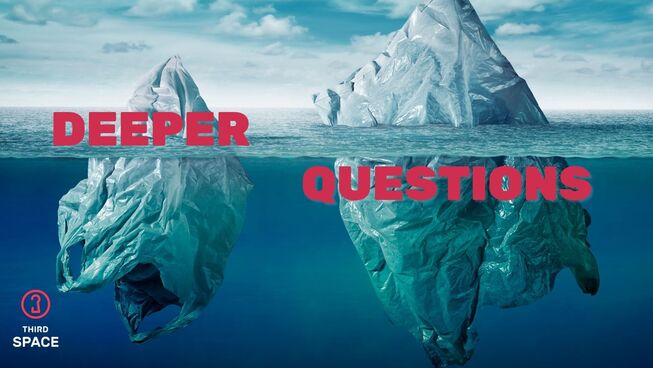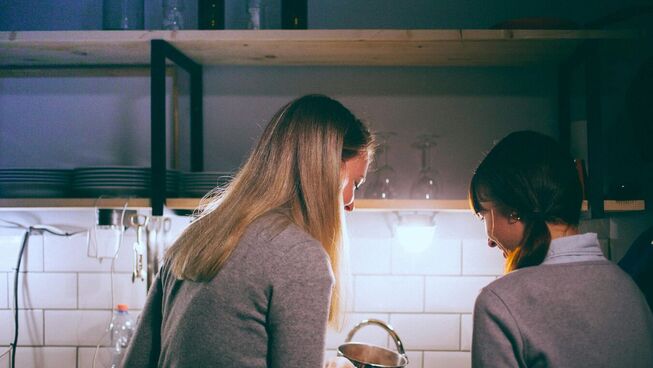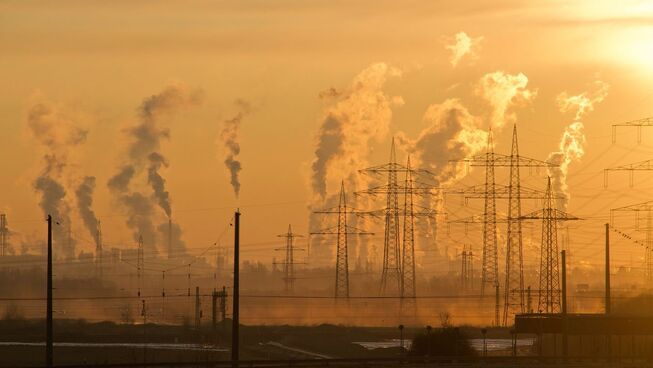Why Christianity is an advocate for, and even demands environmental concern
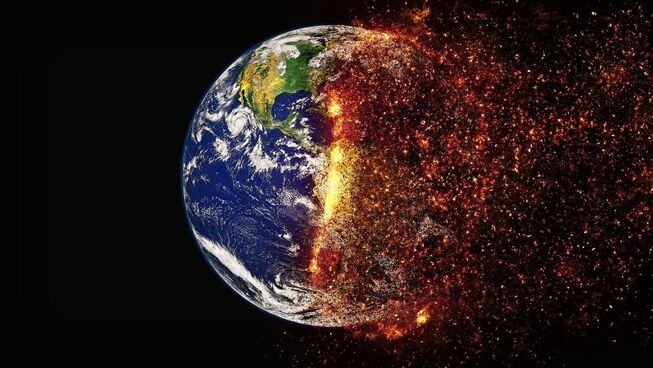
For the last 12 months COVID-19 has dominated local and global headlines. And rightly so. But with the rollout of vaccines, and in countries like Australia where cases numbers are low and stabilising, public attention is returning to pre-COVID hot topics (pun intended) like climate change. And again, rightly so.
The past 12 months we have been busy fighting a viral battle. But that doesn’t mean the environmental battle we were all so keenly aware of as little as 12 months ago (remember the raging Australian bushfires of the summer of 2019-20 which made global headlines) has gone away. Indeed, even at the height of the coronavirus pandemic, in August 2020 Bill Gates wrote a challenging article titled, COVID-19 is awful. Climate change could be worse. In it he explained,
“I realize that it’s hard to think about a problem like climate change right now. When disaster strikes, it is human nature to worry only about meeting our most immediate needs, especially when the disaster is as bad as COVID-19. But the fact that dramatically higher temperatures seem far off in the future does not make them any less of a problem”.
As Gates rightly predicted, given the state of the pandemic in Australia at the moment, no longer does the threat of climate change feel “far off in the future”, but it’s already returning to our public and political discourse as an issue we need to address.
A confession - I am not a climate scientist. Indeed I’m not a student of any of the sciences. What I am is a student of the Bible. But I actually believe it provides us with a great framework for considering how to tackle the threat of climate change.
Now you might be a student of a different faith, or of no faith at all. But come with me on a short journey, and let me show you how I think the Bible actually has a lot to add to this urgent conversation.
1. God “plants” a “good” world that shows us how great He is
The Bible begins with the bold claim that a God made this world simply by speaking. That might be a stretch too far for some, but what is striking is how this God repeatedly describes the world that He makes: “good” (He uses this word to describe His creation six times, plus one “very good” just to make sure we get the point!). This is the world that the Bible tells us God “planted” (Genesis 2:8).
But God’s world is not simply good for the sake of being good. Elsewhere in the Bible we’re told that the goodness of the creation is meant to point us to its Creator. “The heavens declare the glory of God” (Psalm 19:1). You know that feeling you get when you enjoy a sunrise, or hear the sound of birds on a forest walk, or feel overwhelmed at the side of a cliff top? It’s no accident that you feel that way. The Bible offers an explanation for it – that’s what it feels like to encounter glory. But we’re not meant to settle for simply basking in wonder at the good world, but basking in wonder at the good God who made it. Don’t be ashamed if you can’t restrain yourself in expressing wonder at the beauty of creation, but let me encourage you to direct it to the God the Bible claims to have made it.
2. Our job was to “work the earth with care”…but we fail to do this properly
Now hold on a minute Andrew you say. I don’t have to look too far to see plenty of “not good” in the world today. Indeed climate change is a stark example of that.
But here is a confronting truth. The Bible teaches that it’s not God’s fault for the “not good” in the world; it’s ours. Now before you dismiss this completely, just stay with me a moment longer and see if just maybe this is true.
a) Our job to “work” the earth
Let me unpack the logic. God not only “plants” a beautiful “good” creation, but He generously shares it with humans to enjoy it and work it. I was recently given a giant Lego Yoda to build and I’m reluctant to let my children play with the finished product. But such is the generosity of God that He hands over the entire creation and says “play with it, enjoy it, use it, develop it, for your good and the good of others”. Indeed, before the paint has barely finished drying on His creation so to speak, God says to the first humans, take this creation I have “planted” and “work it and take care of it”.
That word work is important. It carries the idea of actually taking the resources of the world and using them. Creation was never meant to remain static (unchanged), but in all our work God intended that we might take the resources of the world (whether they are material resources, information resources or so on) and “work” them – move things around to develop things which benefit ourselves and others. Ayn Rand provides a lovely description of this in her book Atlas Shrugged:
“Whether it’s a symphony or a coal mine, all work is an act of creating and comes from the same source:…the capacity to see, to connect and to make what had not been seen, connected and made before”.
Now there is an important implication of this which relates to climate change and the wider environmental conversation. In light of this understanding I disagree with those environmental movements that argue this world should remain static, that is, we should never change it, modify it, dig it up, chop it down, and use it. On the contrary, the Bible teaches humans were meant always meant to have a dynamic relationship with God’s creation.
b) But to do so with care
But (and this really is a big but), God tasks humanity with the job of “working the earth and taking care of it” (2:15). We are to be responsible stewards of the creation God has given us to play with and enjoy and work.
Those words “take care” literally mean something like “watch over’, “guard”, or “keep”. They carry connotations of a mother protecting her child. We are to nurture this creation with the same tenderness and gentleness that a mother would her child.
As an aside, it’s the total opposite image you often get in environmental movements where creation is spoken about as “Mother Earth”. The Australian singer John Butler has a song called “Treat your mama well”. It’s all about how we have to care for Mother Earth. But when it comes to who the mother is the Bible says humans are! Collectively we are the mother given responsibility to tenderly keep, watch over, guard, and protect the creation God has entrusted to us. We’re to work it in a way that preserves, protects, nurtures, and cares for it. We’re not meant to exploit it (or exploit other people) in our working of it to benefit others. The Biblical scholar David Jensen sums up perfectly how this relationship between working the earth and treating it with care should operate:
“Work is always related to land, made possible because of resources of the land, and enables us to live from the bounty the land produces. No labour occurs apart from or removed from the land. Computer programming draws on minerals mined from the earth’s crust; legal systems are attempts to live civilly on the land with one another…And all kinds of work are exchanged for food and resources reaped from the land. Good work draws us toward the land, reminds us of our indelible connection to earth, and teaches us to tread lightly”.
We are to “tread lightly” in our work.
At this point I want to challenge the other polar extreme in the climate change debate. The one which says we should do nothing, or it’s not my problem, or there’s not really a problem at all. As a Christian I find this view untenable. The Bible clearly recognises that humans can have an impact on the environment – for good or for ill – otherwise it would not instruct humans in how we should treat it with care. Further, elsewhere it is explicit that it is the responsibility of us all in our working to do so with care, keeping in mind the needs of future generations (see for example Exodus 23:10-11; Leviticus 25:11-12). I personally believe Christians should be at the forefront of caring for God’s creation, involved in the pioneering work that understands our impact upon it for ill, and how we might tread more lightly in our work.
c) But we fail to do this properly
Coming back now to the claim I made at the start of this section, that the plenty of “not good” we see in the world today (in particular climate change) is not God’s fault; it’s ours. That is an uncomfortable truth perhaps, but I am persuaded both from personal experience, and ultimately the teaching of the Bible, that this is the case.
The Bible teaches the confronting truth that all of us at our core are ultimately selfish. We ultimately will do what works best for us. When it comes to our daily working of this creation it means so often we see “the unrestrained abusing of creation for selfish ends”. Let me give just one example of that – how our selfishness leads to negative environmental consequences.
Rex Tillerson is the ex-Exxon Mobil CEO. In 2019 he took the stand at a hearing into climate change in New York and made this startling admission regarding the work of that company and its impact on the climate:
"We knew. We knew it was a real issue. We knew it was a serious issue. And we knew it was one that's going to be with us now, forevermore, and it's not something that was just suddenly going to disappear off of our concern list because it is going to be with us for certainly well beyond my lifetime”.
It’s an extraordinary admission, but let's not just single him out. The reach of human selfishness is far and wide. It impacts everything including how we treat the environment. And as Rex revealed, at times we knowingly destroy it for the sake of personal profit.
3. The only One who did treat creation as intended
Thankfully this is not the end of what the Bible teaches about the environment (and climate change in particular). While selfishness drives so much of our treatment of the creation, there is One (and only One) in human history who related to the environment in the way God intended, Jesus Christ. In the biographies of Jesus in the Bible we read of Him calming storms (Mark 4:35-41), walking on water, displaying a relationship with the creation that we have never seen before or since (Matthew 14:22-23), turning water into wine, “working” the earth for the good of others (John 2:1-11).
But at the heart of the accounts of Jesus is His death, a death that the Bible teaches was for us to forgive us for all our selfishness, not just that which impacts the creation. An event that the Bible says leads to new life for those who believe in Him, a new life that changes people in every way, not least in one's concern for the environment.
But even more than that, the Christian hope is of God to one day make all things new and restore this creation harmed by our selfish treatment of it (Romans 8:19-22; Revelation 21:1-4). That’s not an excuse to treat it however we like now; rather, get on board with what God is going to one day do anyway! The Christian faith inspires people to treat the creation as God originally intended, and in light of how He will one day restore it. And the Christian faith empowers followers of Jesus to do just this, as they are forgiven by His death for their selfishness, and given a new life that seeks the benefit of others before their own, to care for the creation as an act of love for others, both now and future generations.
How can we care for it in light of climate change? That’s perhaps the topic of another article! And perhaps for others far more experienced than I in what we can and should be doing NOW to address the climate crisis. But the Christian faith is not at odds with environmental concern. Indeed it demands environmental concern. If you’re a Christian, what will you change as an act of selfless love to improve the state of our environment? If you’re not, let me encourage you to dig deeper into what the Bible says about the environment, and know that it is an advocate, not an enemy, in this conversation.
